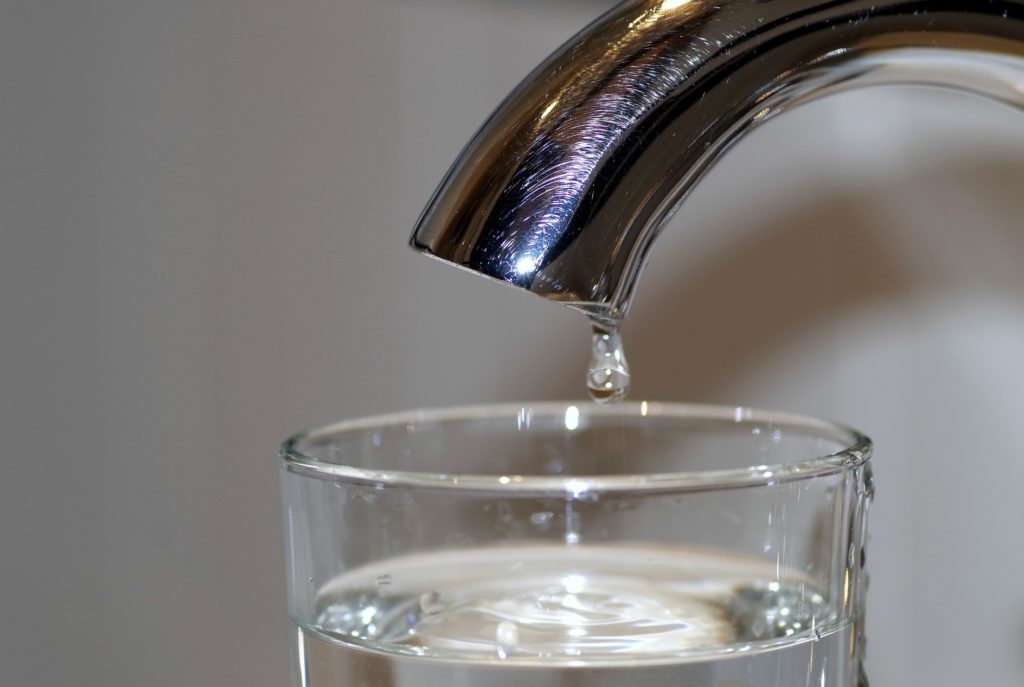My Detailed Handbook to Managing Low Water Pressure in Your Home
My Detailed Handbook to Managing Low Water Pressure in Your Home
Blog Article
Were you on the lookout for help and advice involving 9 Reasons for Low Water Pressure in Your House?

Low tide pressure in your house can be a discouraging problem, affecting whatever from bathing to washing dishes. If you're experiencing weak water circulation, there are numerous feasible causes and services to discover. In this overview, we'll discuss usual factors for low tide pressure and useful steps to resolve the concern effectively.
Intro to Low Tide Pressure
Low water stress happens when the circulation of water from your faucets, showers, and other fixtures is weak than typical. This can make everyday tasks a lot more challenging and much less effective. Comprehending the root causes of low water pressure is important to finding the ideal option.
Usual Root Causes Of Low Tide Stress
Pipeline Obstructions
In time, pipes can become obstructed with natural resource, debris, or particles, restricting the circulation of water. This is an usual problem in older homes with galvanized steel pipelines.
Rust
Deterioration within pipes can result in leakages and minimized water pressure. Corrosion buildup can restrict water flow, specifically in maturing plumbing systems.
Faulty Pressure Regulatory Authorities
Stress regulators are responsible for keeping consistent water stress in your house. If they malfunction, it can cause low water pressure or uneven circulation throughout your home.
Municipal Water System Issues
In some cases, the issue lies outside your home. Municipal water system problems, such as main line leakages or maintenance job, can temporarily reduce water stress in your area.
Just How to Detect Low Tide Stress
Inspecting Taps and Components
Start by evaluating the water stress at various faucets and components throughout your home. If the issue is separated to details locations, it might indicate local problems.
Evaluating Pipes
Evaluate visible pipes for indications of leakages, deterioration, or blockages. Focus on any uncommon audios, such as banging or rattling pipes, which could indicate concerns within the plumbing system.
Consulting with a Plumber
If you're not able to determine the root cause of low water stress, consider working with a specialist plumber to perform a thorough assessment. They can determine underlying issues and recommend proper services.
Do It Yourself Solutions to Deal With Low Tide Pressure
Cleaning Up Aerators and Showerheads
Mineral deposits can build up in aerators and showerheads, decreasing water flow. Eliminate and clean these parts routinely to enhance water stress.
Flushing Water Heater
Debris accumulation in the hot water heater can limit flow and minimize performance. Flushing the tank regularly assists eliminate debris and keep optimum performance.
Checking Pressure Regulator
Make certain that the stress regulatory authority is working appropriately. Readjusting or replacing the regulatory authority can aid recover proper water pressure throughout your home.
Clearing Up Clogs in Piping
For minor obstructions, try making use of a plumbing serpent or chemical drainpipe cleaner to clear obstructions in pipelines. Be cautious when using chemicals and comply with security guidelines.
When to Call a Specialist Plumber
If DIY efforts fall short to resolve the problem or if you suspect considerable plumbing issues, it's best to look for aid from an accredited plumber. They have the proficiency and tools to attend to complicated problems safely and successfully.
Safety Nets to Preserve Water Stress
Normal Upkeep
Schedule regular maintenance for your plumbing system to prevent issues such as deterioration, leaks, and clogs. Attending to minor troubles early can assist prevent more significant repairs later.
Mounting a Stress Booster
Consider installing a pressure booster pump to enhance water stress in areas with constantly low circulation. This can be specifically valuable for multi-story homes or homes with high-demand components.
Monitoring Water Use
Bear in mind water use behaviors and avoid ill-using the plumbing system. Simple changes, such as staggering showers and washing loads, can aid keep sufficient water stress.
Conclusion
Handling low water pressure can be frustrating, but determining the underlying reasons and implementing ideal options can bring back optimal flow throughout your home. Whether it's cleansing aerators, evaluating pipes, or talking to a plumber, taking proactive steps can make certain a constant supply of water for your everyday demands.
How to Fix Low Water Pressure In Your Home
Municipal Water Supply Issues
Scheduled maintenance, high demand, and water main breaks are all potential causes for low water pressure within a city or county’s water lines. While there’s not much you can do to personally fix a problem with your city or county’s water supply system, you can play a big role in documenting the issue and alerting those who can.
How to fix it:
Ask your neighbors if they are experiencing any issues with low water pressure. If multiple homes are affected, it’s likely related to the city’s water line.
Contact the local Water Authority to see if there is any maintenance taking place that might be affecting your supply. Also let them know of your specific issues. If other homeowners report the same issues, they’ll know that there could be a larger issue to look into.
Faulty Fixtures
A damaged or clogged shower head, faucet or appliance is the first thing we’d suggest checking, especially if low water pressure appears to be isolated to a specific area of your home.
How to fix it:
First, turn off the main water supply to your home.
Check the affected appliances for build-up or debris. In the case of a faucet, you can simply unscrew the aerator at the tip of the faucet. Showerheads should be fully detached from the water pipe.
While the appliances are detached, you may want to check the water supply to determine if the fixtures were in fact the issue.
To clean, soak the showerhead or aerator in vinegar and brush off any visible debris.
Reattach the fixtures and check the water pressure again. If it is still low, there is likely a deeper issue at hand, which can be determined by a professional plumber.
Pipe Obstructions
Mineral deposits, rust or other debris within water pipes can lead to blockages or corrosion over time.
How to fix it:
When you think of a clog, you probably think of a drain clog. While there are many DIY solutions to clearing a drain, clogs in a water pipe will almost always require the help of a professional plumber. A plumber will be able to locate the affected pipe and clean out any debris or mineral deposit buildup. In severe cases, the pipe may need to be replaced. Your plumber might also recommend a water softening system to remove the minerals from your home’s water supply that can contribute to pipe blockages over time.
Plumbing Leak
Undetected water line leaks can divert water away from your residential pipes, reducing the water pressure in your fixtures.
How to fix it:
Check your water meter by turning off all water sources and monitoring the meter for any movement, which could be a clear indicator of a potential leak.
Check all visible pipes for signs of leaking, including water stains, active dripping or damp spots around the pipe.
Inspect fixtures, including faucets and showerheads, for any drips.
Test the pressure but recording the pressure with the main water valve shut off. Leave off for a few hours and test again. A significant drop in pressure is a clear sign of a leak.
https://kiddcoplumbing.com/plumbing-blog/how-to-fix-low-water-pressure/

How to Fix Low Water Pressure In Your Home
Municipal Water Supply Issues
Scheduled maintenance, high demand, and water main breaks are all potential causes for low water pressure within a city or county’s water lines. While there’s not much you can do to personally fix a problem with your city or county’s water supply system, you can play a big role in documenting the issue and alerting those who can.
How to fix it:
Faulty Fixtures
A damaged or clogged shower head, faucet or appliance is the first thing we’d suggest checking, especially if low water pressure appears to be isolated to a specific area of your home.
How to fix it:
Pipe Obstructions
Mineral deposits, rust or other debris within water pipes can lead to blockages or corrosion over time.
How to fix it:
When you think of a clog, you probably think of a drain clog. While there are many DIY solutions to clearing a drain, clogs in a water pipe will almost always require the help of a professional plumber. A plumber will be able to locate the affected pipe and clean out any debris or mineral deposit buildup. In severe cases, the pipe may need to be replaced. Your plumber might also recommend a water softening system to remove the minerals from your home’s water supply that can contribute to pipe blockages over time.
Plumbing Leak
Undetected water line leaks can divert water away from your residential pipes, reducing the water pressure in your fixtures.
How to fix it:
https://kiddcoplumbing.com/plumbing-blog/how-to-fix-low-water-pressure/
I ran across that piece about 9 Reasons for Low Water Pressure in Your House when doing a search on the search engines. Feel free to take the opportunity to share this entry if you appreciated it. Thank you for being here. Please stop by our site back soon.
Contact Us Now Report this page